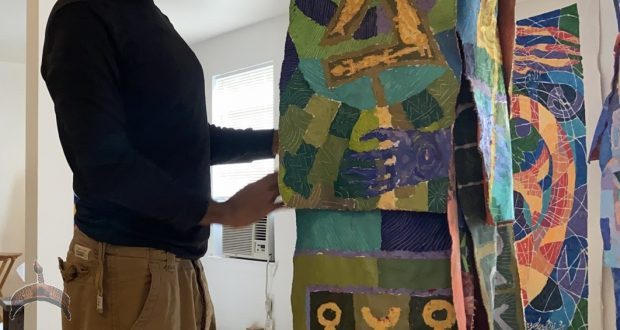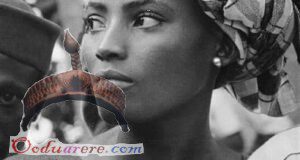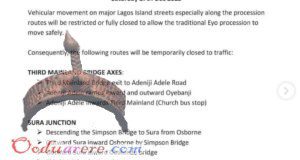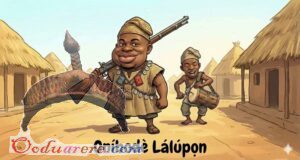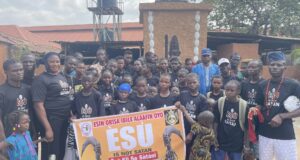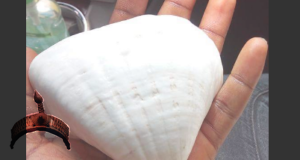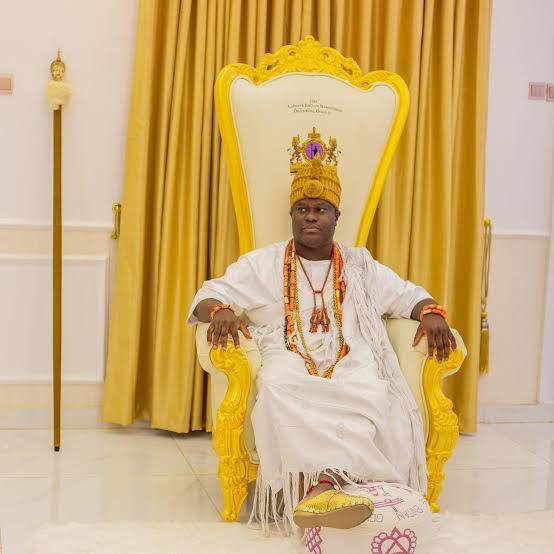EGUNGUN:
How, oh king, would you feel to have your village attacked, pillaged, destroyed, set on fire?
KING CHARLES:
That indeed would be a thing of pity.
EGUNGUN:
Precisely that you did in Africa.
KING CHARLES:
How so? Prove your accusation. It is of no virtue to lay an indictment without proof. The wind blows up the lies of men, but forever stout stands the tree of truth, from one generation to another.
EGUNGUN:
My honesty I will prove in a moment. Honesty is a fire burning in the heart of the virtuous. The more lies that blow desperate wind to extinguish falsehood, the more keenly the fire rages.
Amebo, what happened to thee in thy village on the night of 1865?
(Amebo appears from Ọ̀run and sits on a golden stool in the king’s bed chambers).
AMEBO:
Be thou blessed without end, Egungun Ara Orun. With my family, I went to bed on that eventful day in 1865. The great tears in my eyes are for that night.
From nowhere descended plunderers.
They fell on house, brandishing guns, machetes and sliver javelins, the likes of which were not known in our Ogun forges.
‘Twere not a tale I like to tell what they did to my family, that fateful night.
That same night they killed me with a single shot to the head, but my fate was fairer than those they killed not but captured alive.
KING CHARLES:
Were your attackers not your people who fell one against the other, unfortunate woman! Did you see anybody of European stock among your plunderers?
Did your killer not also come from the stock of your neighbor?
AMEBO:
Indeed, shocked were we at that hour that our attackers were also dark-skinned like us.
Later we learned that these treacherous agents were paid to mutilate and seize us by your forebears waiting with their ships at the marine shores to cart us away in captivity.
Nothing, no amount of compensation can comfort me for that night you terminated my journey on earth.
KING CHARLES:
Can you blame us if your rulers in whom you resided your confidence was lured to sell you to us for the price of twelve men to a horse?
EGUNGUN:
Damned are they that sold their souls for sixteen cowries; but even more damned are those that lure them to sell, arming them with loathsome weapons to destroy the body and kill the soul.
Whosoever steals the keg of palm oil from the rafter is not as guilty as you, Oh King, who assists him to bring down the loot. But even more contempt doth he deserves who knowingly buys the filched keg of palm oil, informed that he was purchasing stolen goods.
In the cover of the night, you paid a few traitors to betray their people and raid their ancestral home, thinking none would know. You are the vulture hiding behind bushes, lurking to feed on the carrions of those you handsomely paid to kill.
KING CHARLES:
(Aside from Camilla)
We thought this secret would never be out, that in truth, we rewarded a handful of traitors to pillage the wealth of African nations. Who knew at that time that in due course Amebo here would return from the grave to tell her tale!
EGUNGUN:
We heard what you just murmured to your queen. Whatever you say subtly will be heard subtly.
When the child casts a stone against the palm tree, the palm tree throws back the same stone at the stone caster. I will call more witnesses.
KING CHARLES:
No more witnesses, E-gone-gone. It is already night and the owls are about. My eyelids are weary and I pine to join my fair lady, Camilla, in our Royal Bed. No more trial tonight! Depart now to return tomorrow. I will have to wait for you with a thousand bags of purest gold bars from the Mansa Musa!
EGUNGUN:
Trying to bribe me like you bribe African traitors?
You fail if that is your mind.
Your trial is just about to begin.
Call in the next witness.
(Exeunt Amebo like a puff of wind)
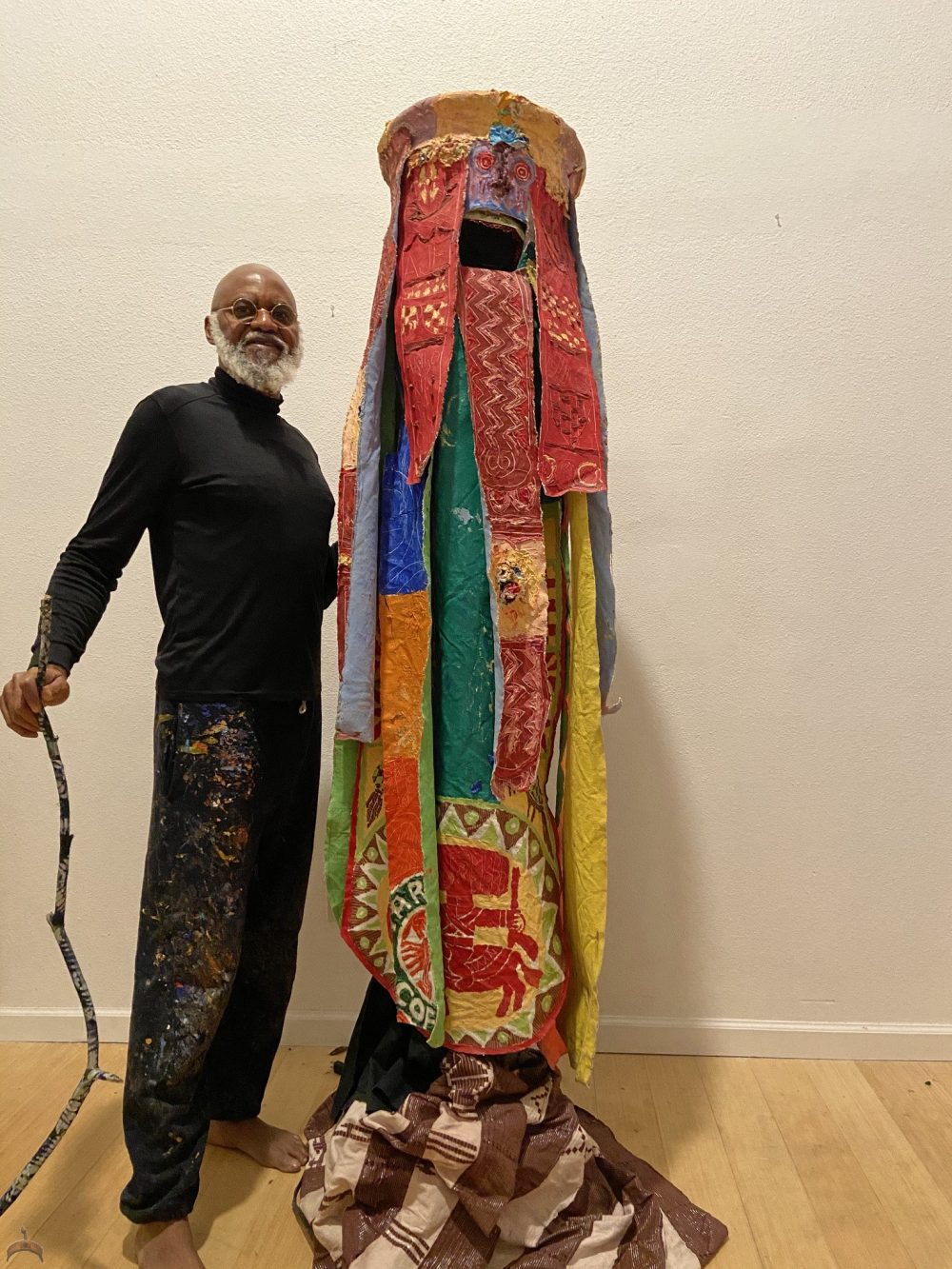
 Ọmọ Oòduà Naija Gist | News From Nigeria | Entertainment gist Nigeria|Networking|News.. Visit for Nigeria breaking news , Nigerian Movies , Naija music , Jobs In Nigeria , Naija News , Nollywood, Gist and more
Ọmọ Oòduà Naija Gist | News From Nigeria | Entertainment gist Nigeria|Networking|News.. Visit for Nigeria breaking news , Nigerian Movies , Naija music , Jobs In Nigeria , Naija News , Nollywood, Gist and more

